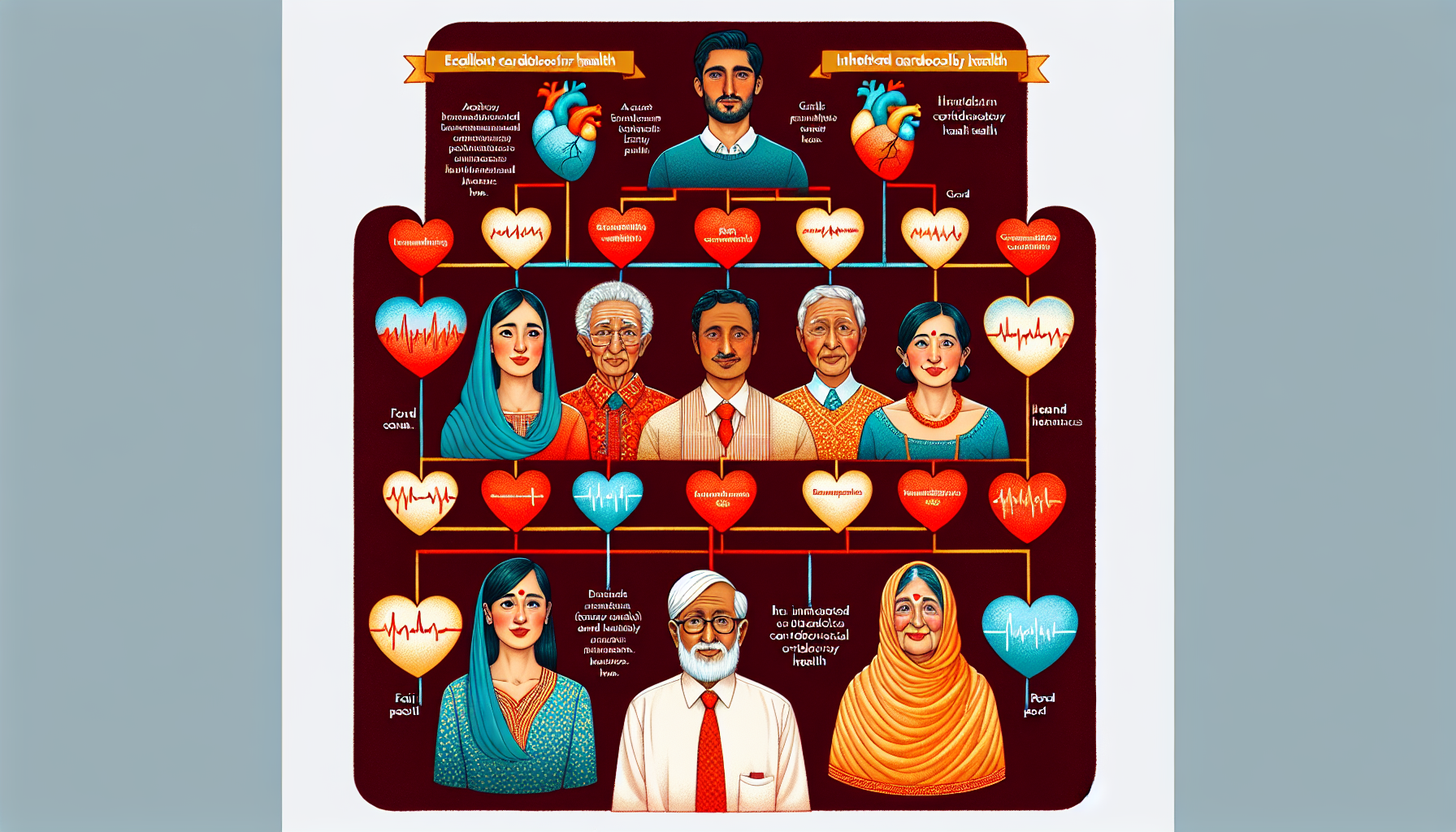Understanding one’s family history is a pivotal aspect of health awareness, particularly concerning heart health. A comprehensive assessment of family health history is not only a tool for recognizing potential risks but also serves as a guide for implementing personalized preventive measures. This article delves into the critical role of family history in heart health assessment and how individuals can utilize this knowledge to maintain and improve their cardiovascular health.
The Genetic Link to Heart Health
Heart disease is often perceived as a consequence of poor lifestyle choices or environmental factors, but the truth is, genetics play a significant role. Genetic predispositions can influence an individual’s susceptibility to various heart conditions, including coronary artery disease, arrhythmias, congenital heart defects, and cardiomyopathy.
For those with a family history of heart disease, the risk of developing similar issues is markedly higher. This is why understanding your lineage can be as crucial as dietary and exercise habits. For comprehensive information on cardiovascular health, visit Avix Health’s thorough resource.
Analyzing Your Family Tree
To begin assessing your risk, compiling a detailed family health history is essential. This includes gathering information about the health of your parents, grandparents, siblings, and even extended family. Pay attention to patterns such as the age at which relatives developed heart disease, the type of conditions they experienced, and other related factors such as diabetes, high blood pressure, or high cholesterol levels.
Preventive Measures Based on Family History
With a clear understanding of your family history, you can work alongside healthcare providers to create a prevention plan tailored to your specific risks. Lifestyle adjustments like a balanced diet, regular exercise, and avoiding smoking can significantly reduce the risk of heart disease, especially for those with a genetic predisposition.
Moreover, early intervention strategies, particularly for younger individuals, can make a substantial difference in long-term heart health outcomes. Educating teens about the importance of heart health, as outlined in Heart Health Education for Teens: Early Intervention Strategies, is key to instilling lifelong healthy habits.
Role of Regular Health Screenings
Regular health screenings that monitor blood pressure, cholesterol levels, and other heart-related markers are vital, especially for individuals with a family history of heart disease. These tests can detect issues early on, enabling timely treatment and management.
Heart Health Myths and Facts
It’s crucial to distinguish between facts and myths when it comes to heart health. For example, many people mistakenly believe that heart disease only affects the elderly or men. However, heart disease can affect anyone at any age, and women are equally at risk, especially post-menopause. Dispelling such myths is necessary to ensure everyone takes their heart health seriously, more of which can be read in Heart Health Myths Debunked.
The Impact of Diet on Heart Health
Diet plays a substantial role in cardiovascular health. For those with a family history of heart disease, it becomes even more crucial to monitor intake of sodium, fats, and other components that impact heart health. Strategies for reducing sodium intake can be found in Strategies for Reducing Sodium Intake for Heart Health.
Advances in Genetic Testing
Advancements in genetic testing have made it possible to identify specific genes associated with heart disease. Such tests can help individuals understand their risks on a molecular level and make informed decisions regarding their health.
The Importance of Mental Health in Cardiovascular Care
Mental health and heart disease are intricately linked. Stress, anxiety, and depression can have a detrimental impact on heart health, and those with a family history of heart disease should be aware of this connection. Addressing mental health is an integral part of preventing heart disease, as discussed in Addressing the Link Between Mental Health and Heart Disease.
Lifestyle Adjustments Post-Heart Event
In the unfortunate event of a heart attack or other cardiac incident, lifestyle adjustments become imperative. The Heart Attack Recovery Guide: Lifestyle Adjustments Post-Event offers valuable insights into recovering and maintaining heart health after such an event.
Resources and Support
Apart from internal resources, it’s beneficial to explore external, high-quality references that support the points made in this article:
- The American Heart Association offers an in-depth guide on family history and heart disease.
- The Centers for Disease Control and Prevention provides a comprehensive tool for collecting and using family health history.
- For those interested in genetic testing, the National Society of Genetic Counselors has a resource for finding a genetic counselor.
- The Mayo Clinic presents a detailed explanation of the effects of mental health on heart health.
Incorporating this wealth of knowledge into your health regimen can lead to a better understanding of your heart health and a more proactive approach to managing potential risks.
Conclusion
Family history is an invaluable component of heart health assessment. It provides insight into genetic predispositions and potential risks that may not be evident through lifestyle factors alone. By leveraging this knowledge, individuals can collaborate with healthcare professionals to create targeted prevention strategies and make informed choices about their health. Remember that while you cannot change your genetic makeup, you can influence how it affects your life through conscious, healthful choices and practices.



